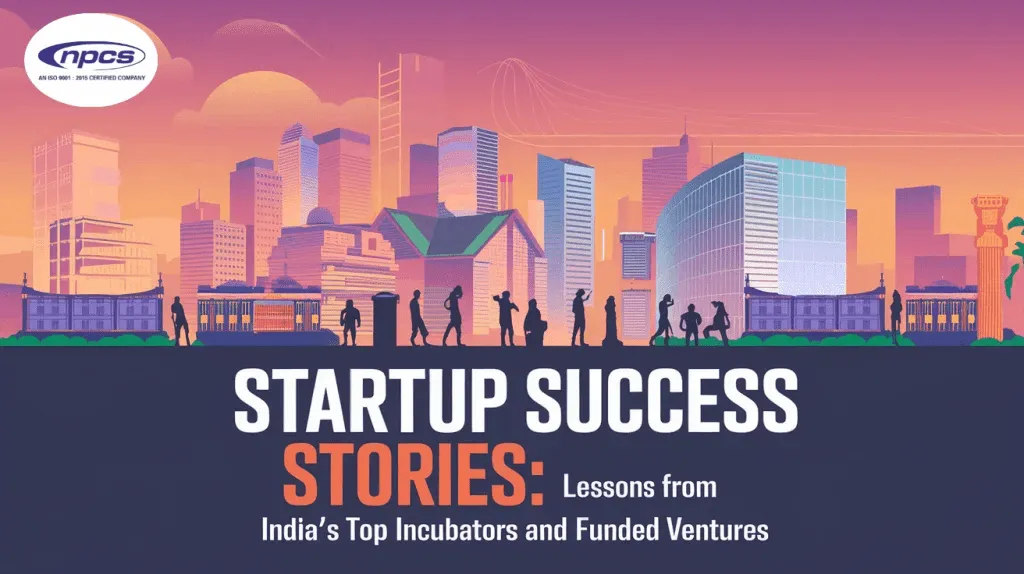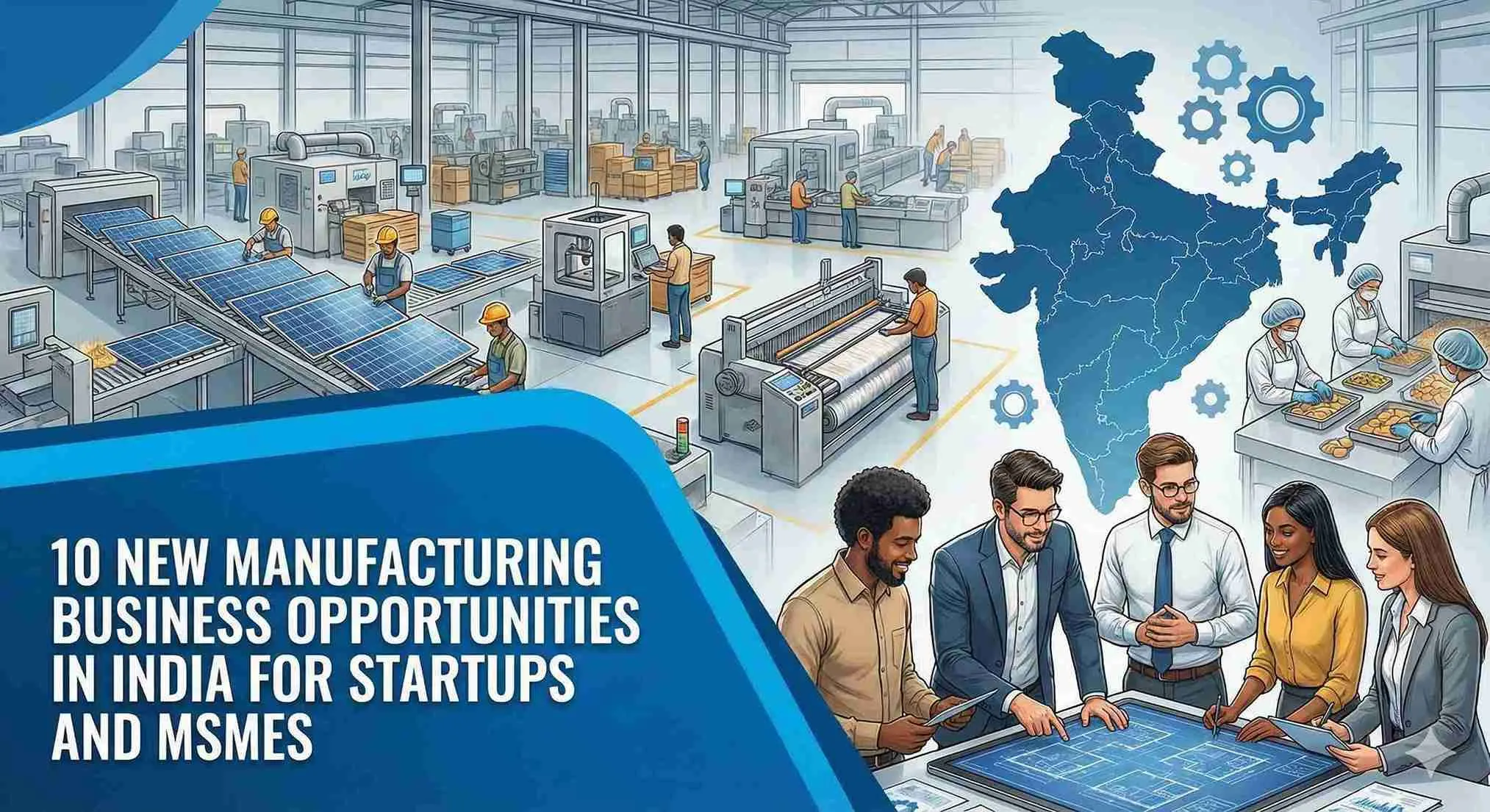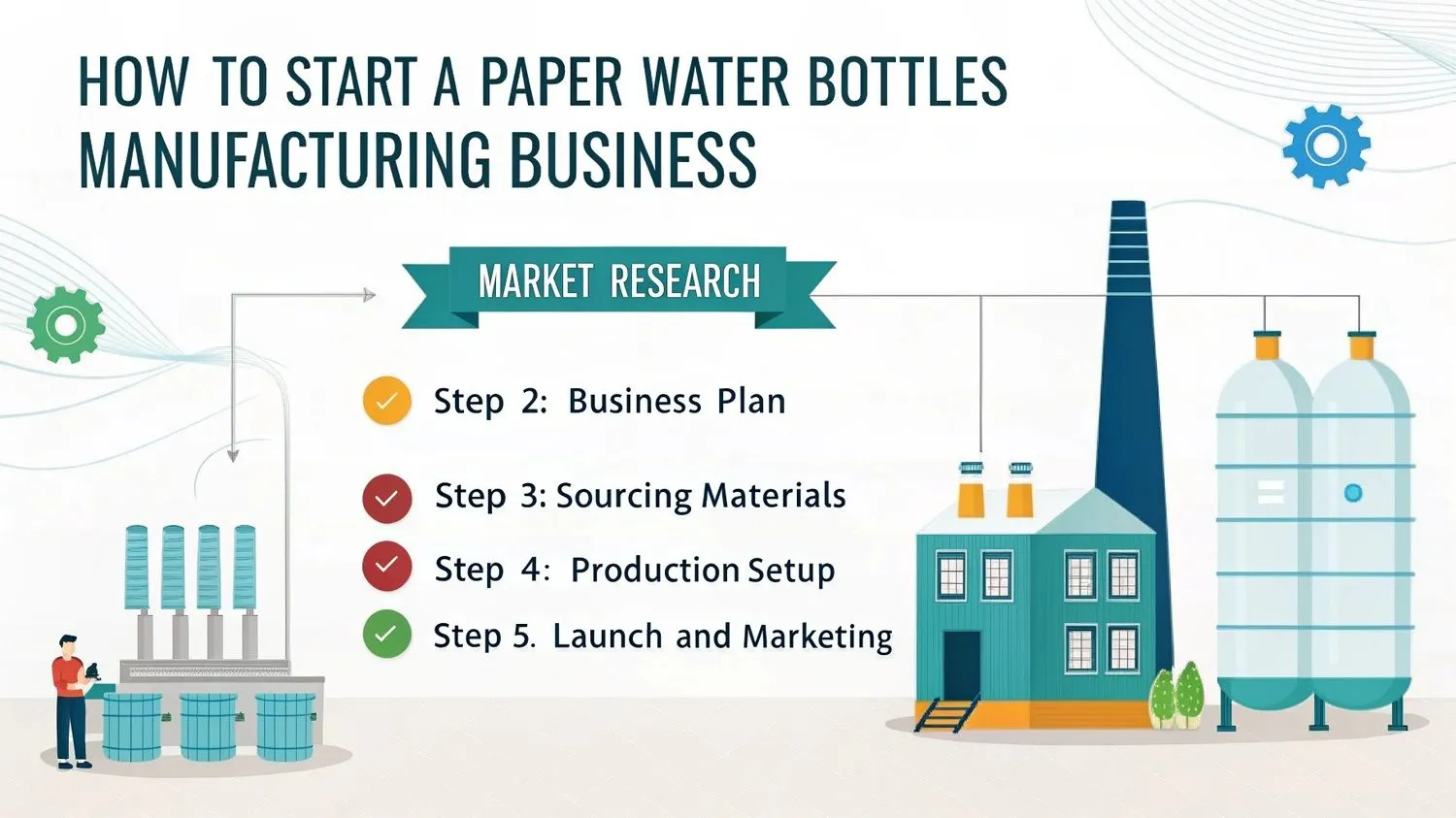India’s startup ecosystem has become one of the most dynamic and exciting in the world. Startup incubators, funding sources, and innovative business development strategies have played a key role in transforming ideas into Startup Success Stories, making the country’s entrepreneurial landscape thrive. It demonstrates how India’s startup culture can take a tech startup from Bengaluru to driving innovation in Gujarat. With the right guidance and capital, these local businesses grow into remarkable Startup Success Stories
Take a look at the inspiring Startup Success Stories in India top incubators and funded ventures in this article. Let’s take a look at their journey and extract from it some useful lessons for the budding entrepreneur exploring the opaque world of the startup.
Contents
- 0.1 Startup Success Stories in India Incubators and Their Role in Shaping Success
- 0.1.1 Startup Funding Sources and The Power in Scaling Ventures
- 0.1.2 Building a Strong Brand: Business Development Strategies
- 0.1.3 Startup Incubators and Accelerators: Catalysts for Growth
- 0.1.4 Funding Sources and Government Initiatives in the Evolution of Government
- 0.1.5 Strategic Business Development Strategies for Scaling Up
- 0.1.6 Market changes and the needs of the consumers
- 0.1.7 Conclusion
- 1 Frequently Asked Question
Startup Success Stories in India Incubators and Their Role in Shaping Success
The road to becoming every successful startup boils down to enrolling in a startup incubator. They offer the startup the basic resources, mentoring, and networking opportunities to help startups grow and scale. Examples of which are T-Hub in Hyderabad, NASSCOM 10,000 startups in Bengaluru, and Startup Village in Kochi. The majority of these incubators are dedicated to helping grow solid startups through starting from the seed funding and business development training.
Another example is T-Hub, the incubator that has helped startups across the fintech, healthtech, and even IoT sectors, connecting them to angel investors, VCs, and even cool incubator offices on campus. With business development strategies, access to industry experts, and partnerships with other startups, entrepreneurs benefit. The arrangement has permitted startups to thrive, but not just survive, in fiercely competitive markets.
Key Takeaway: Use startup incubators to take advantage of mentorship, resources, and networking opportunities that will jump-start your scale.
Also Read: Startup Ideas with the Fastest and Biggest Growth
Startup Funding Sources and The Power in Scaling Ventures
All businesses need startup funding and the right sources for this. India has a very good network of investors, from angel investors and venture capital firms to government schemes that support India startup ecosystem. With its combination of seed investments and venture capital from SoftBank and Tiger Global Management, Indias leading ride-hailing service, Ola, is one of the most prominent stories.
Like Zomato, which was incubated at Startup Village and later became a multi-million funded startup by Sequoia Capital India. These startup funding sources gave Zomato the muscle to expand rapidly into unwanted territories, going global even.
Key Takeaway: Venture capital and angel investors can provide the funding necessary to expand, but again, sources of startup funding.
Our Project and Market Research Reports:
Building a Strong Brand: Business Development Strategies
Any thriving startup depends on effective business development strategies. Well-defined brand and customer experience is crucial for successful startups. A case in point is Swiggy, which eclipsed competitors in the fast-moving food delivery business. Swiggy carved a sizable market share through a combination of aggressive marketing, excellent customer service,, and some clever partnerships.
Cutting-edge features that Swiggy uses as its business development strategy are real-time tracking, quick deliveries, and building strong relationships with restaurants. These strategies not only attracted customers but also built loyalty in a competitive market. Similarly, Paytm used innovations like cashbacks and discounts to drive customer acquisition and retention.
Key Takeaway: Brand building, customer experience, and partnerships to inculcate growth are the forte of strong business development strategies.
Our Books:
- Startup Projects for Entrepreneurs
- Money-Making Business Ideas
- Handbook on Small & Medium Scale Industries
- Manufacture of Pan Masala, Tobacco, and Tobacco Products.
Startup Incubators and Accelerators: Catalysts for Growth
It doesn’t stop here; another cornerstone of India’s startup ecosystem is the accelerator programs offering specialized mentorship. Startup success stories like UrbanClap (now Urban Company) and Razorpay have scaled through Sequoia Surge, a growth accelerator by Sequoia Capital. These programs drive business growth by providing access to top-tier mentors, strategic guidance, and networking opportunities with leading investors—fueling even more startup success stories across the country.
Startups working with Sequoia Surge receive tailored product-market fit and team and fundraising guidance. Such programs, as well as other startup incubators, feature a programme that requires great testing of the idea, refinement of the business model, quick scaling, etc.
Key Takeaway: Startup incubators and accelerators like Sequoia Surge offer much-needed tailored mentorship, direction on strategy, and access to capital, which make a big difference to startups in the early stages.
Also Read: List Of 8 Most Successful Business Ideas for Startup
Funding Sources and Government Initiatives in the Evolution of Government
The government has played a key role in developing India’s startup ecosystem. In particular, initiatives like Startup India offer tax benefits, grants, and equity funding to support new ventures. For instance, logistics startup Rivigo, initially supported by Startup India and later funded by SAIF Partners and Warburg Pincus, revolutionized delivery with its relay trucking model, cutting delivery times in half without raising costs.. As a result, Rivigo scaled rapidly and is now valued at over $1 billion.
Key Takeaway: Government schemes and startup funding sources are sources used by startups to help them overcome the first stages of financial barriers and grow in efficiency.
Also Read: List of 150 Profitable Business Ideas for MSME
Strategic Business Development Strategies for Scaling Up
After achieving product-market fit and securing adequate funding, the next stage—scaling—begins. At this point, the funding relieves the startup team from the pressure of constant fundraising and allows them to focus on building the product. During this phase, the most successful startups advance by adopting strategies like market penetration, strategic partnerships, and operational efficiency.
Digital marketing, strategic partnerships, and the creation of localized content have been leveraged by Indias biggest EdTech unicorn, Byjus, in its rapid scale. For its business development strategies, this pitched its app with teachers and schools and provided personalized learning paths to students. This method allowed Byjus to grow its user base to millions in India, as well as globally.
Key Takeaway: One of the keys to rapidly scaling is business development strategies, focused on how you partner, acquire the right customers, and how you operate within their own firm.
Market changes and the needs of the consumers
Indias startup ecosystem is trending fast and changing every day. In this environment, entrepreneurs must innately be able to adapt and respond to the market process so that they are successful. PhonePe, a digital payments platform, is one example of how one company changed their business model to cater to growing demand for payments using UPI (Unified Payments Interface) in India.
Success was driven by PhonePes ability to rapidly evolve with the digital payments landscape and secure strong startup funding sources, and, most importantly, a customer-driven approach. PhonePe today is one of Indias leading players in the digital payments market.
Key Takeaway: In the long run, a startup’s success depends heavily on its ability to continuously adapt its offerings to meet changing market and consumer demands. Therefore, flexibility and agility are essential to staying relevant and competitive.
Conclusion
There are some valuable lessons in Indias startup ecosystem for entrepreneurs who want to scale their businesses. Pillars on which successful ventures are built: startup incubators, startup funding sources, and business development strategy. India proves that with the right mix of mentorship, capital, and strategy, startups like Ola, Swiggy, and Byju’s can achieve remarkable success.
For more insights or services regarding business development, please visit NIIR Project Consultancy Services to guide you in developing your startup culture.
Contact Us
Frequently Asked Question
What are startup success stories and why are they important?
Startup success stories are real examples of companies that have grown rapidly, secured funding, and made an impact. They inspire new entrepreneurs and show practical lessons about strategy, funding, and growth.
What lessons can founders learn from India’s top incubators?
India’s leading incubators teach the importance of mentorship, customer validation, robust business models, networking, and focused execution to accelerate startup growth.
How do funded ventures achieve rapid scaling?
Funded ventures scale through clear market fit, efficient use of capital, strong teams, data-driven decisions, and continuous iteration based on customer feedback.
What role does mentorship play in startup success?
Mentorship provides experience, industry insights, strategic guidance, and accountability, helping founders avoid common pitfalls and make smarter choices.















